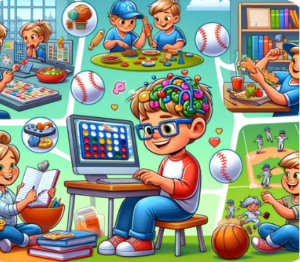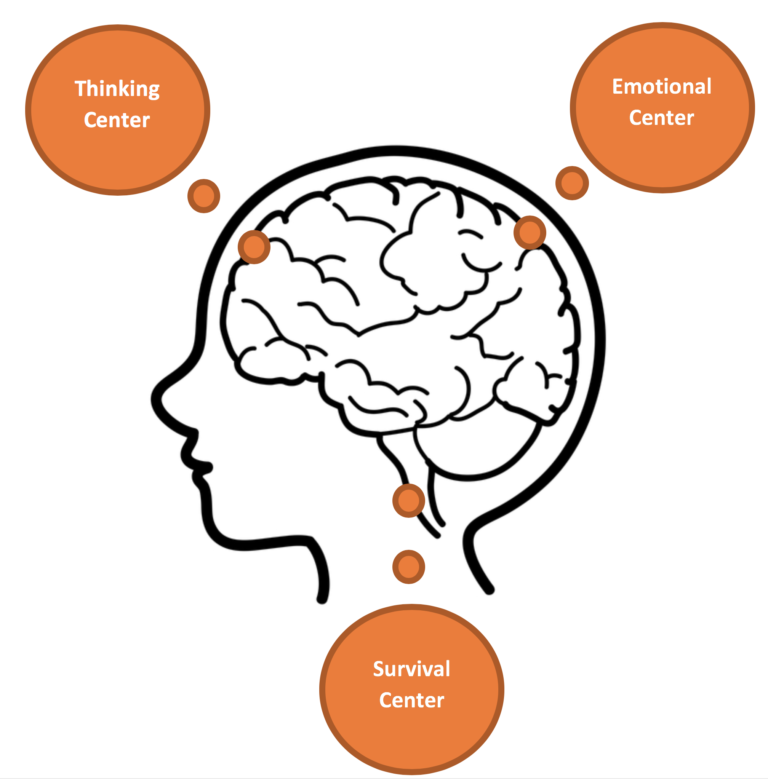As children enter school age, it’s crucial for parents and educators to actively engage their developing brains. During these formative years, children’s brains are highly adaptable and responsive to new learning experiences. This article outlines various strategies to enhance cognitive development in school-aged children, including eliminating bad habits, incorporating fun learning activities, encouraging sports participation, focusing on nutrition, and fostering healthy social interactions.
Cutting Out Bad Habits and Collaborating with Schools
One key aspect of promoting brain development is identifying and reducing bad habits that can hinder cognitive growth. Excessive screen time, irregular sleep patterns, and a lack of structured routine can adversely affect a child’s brain development. Parents can work closely with schools to create consistent routines both at home and in school. Schools can also play a vital role in this by providing an environment that encourages healthy habits and intellectual curiosity. Regular parent-teacher meetings and school programs focusing on holistic development can be instrumental in this process.
We can use the example with smoking, or vaping. Both habits are bad for children, yet so many use cigarettes or vape pens. Schools are now installing vape detectors to try and stop kids ingesting damaging chemicals but it has to be policed at home too. This is where parents and schools need to work together.

Emphasizing the Importance of Rest and Downtime
In the pursuit of engaging a child’s brain and promoting cognitive development, it’s equally important to recognize the value of rest and downtime. Adequate sleep is crucial for memory consolidation and overall brain health. Children need sufficient sleep to process and retain the information they learn during the day. Additionally, unstructured downtime, where children can relax and engage in leisure activities of their choosing, is vital for mental health and creativity. This balance between active learning and restful periods helps in preventing burnout and stress in children, ensuring they remain enthusiastic and receptive to new learning experiences. Parents and educators should thus ensure that children have a well-rounded routine that includes plenty of opportunities for rest and relaxation, alongside educational and physical activities.
Engaging the Brain Through Fun and Educational Activities
Incorporating fun learning activities is an effective way to engage a child’s brain. Activities like playing strategic games such as Connect 4, especially in its online form, can enhance critical thinking and problem-solving skills. Encouraging children to engage in brain-stimulating games, puzzles, and creative projects not only supports cognitive development but also makes learning enjoyable and less of a chore. These activities can be easily integrated into a child’s daily routine, providing a balance between structured learning and creative play.
The Importance of a Varied and Nutritious Diet
A varied and nutritious diet is foundational for brain health and development. Foods rich in omega-3 fatty acids, antioxidants, and vitamins are known to boost cognitive function and memory. A diet that includes fruits, vegetables, whole grains, and lean proteins can provide the necessary nutrients for a developing brain. Parents and schools should focus on offering balanced meals and educating children about the importance of healthy eating habits.
The Role of Sports in Cognitive and Social Development
Participation in sports such as baseball or softball can significantly contribute to a child’s brain development. These sports not only improve physical health but also instill a strong sense of teamwork, discipline, and strategic thinking. They’ll be able to wear their custom baseball uniforms with their team and fit right in. The team ethos and cooperative nature of these sports teach valuable life skills like leadership, communication, and resilience, all of which are beneficial for cognitive and social development.
Building Social Skills and Healthy Friendships
Social interactions play a critical role in a child’s brain development. Developing healthy friendships and strong social skills can enhance emotional intelligence and empathy.
| Activity | Benefits | Example |
| Group Projects | Teamwork, Communication Skills | Science Fair Projects |
| Social Clubs | Interpersonal Skills, Shared Interests | Chess Club, Art Club |
| Playdates | Emotional Development, Empathy | Outdoor Play Activities |
This table highlights activities that can foster social skills and healthy friendships, contributing to well-rounded cognitive development.
A Holistic Approach to Brain Development
In conclusion, fostering brain development in school-aged children involves a multifaceted approach that includes cutting out bad habits, engaging in educational and fun activities, participating in sports, maintaining a balanced diet, and developing strong social skills. By focusing on these areas, parents and educators can significantly contribute to the cognitive and emotional growth of children, setting a strong foundation for their future learning and overall well-being.


